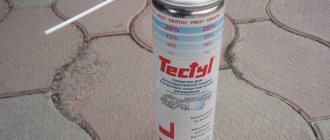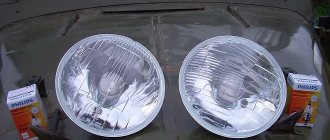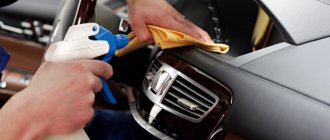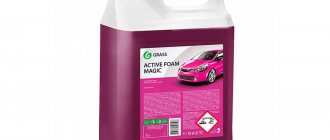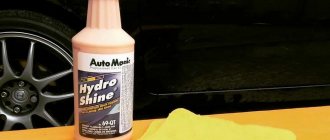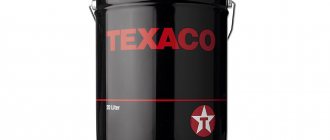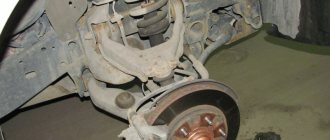Updated: 02/28/2021 16:42:34
Expert: Boris Vladimirovich Filatov
*Review of the best according to the editors of expertology.ru. About the selection criteria. This material is subjective in nature, does not constitute advertising and does not serve as a purchase guide. Before purchasing, consultation with a specialist is required.
Since a diesel engine operates under more severe conditions than standard gasoline counterparts, more stringent requirements are imposed on technical fluids for them. Thus, for motor oil, the key characteristics are resistance to oxidation and preservation of performance properties in the long term, since in diesel engines there is frequent breakthrough of gases into the crankcase.
Due to the popularity of this market segment, Expertology magazine, together with in-house experts, conducted an independent study, during which a rating of the best diesel oils was compiled, for convenience, divided into four main categories. Consumer reviews and the final rating derived from them were taken as the main criterion for selecting goods.
Rating of the best oils for diesel engines
| Nomination | place | Name of product | price |
| The best synthetic oils for diesel engines | 1 | LIQUI MOLY Diesel Synthoil 5W-40 | 730 ₽ |
| 2 | SHELL Helix Ultra Diesel 5W-40 | 840 ₽ | |
| 3 | IDEMITSU Zepro Diesel 5W-40 | 929 ₽ | |
| The best semi-synthetic oils for diesel engines | 1 | LIQUI MOLY Optimal Diesel 10W-40 | 624 ₽ |
| 2 | MOBIL Super 2000 X1 Diesel 10W-40 (4 l) | 326 ₽ | |
| 3 | LUKOIL Standard SF/CC 10W-4 | 171 | |
| The best mineral oils for diesel engines | 1 | SHELL Rimula R4 L | — |
| 2 | LIQUI MOLY MoS2 Leichtlauf 15W-40 | 513 ₽ | |
| 3 | Castrol Vecton 15W-40 | 218 ₽ | |
| The best diesel oils for winter | 1 | SHELL Helix Ultra ECT C2/C3 0W-30 | 900 ₽ |
| 2 | Motul 8100 X-max 0W30 | 965 ₽ | |
| 3 | TOTAL Quartz 9000 Energy 0W30 | 742 ₽ | |
| 4 | IDEMITSU Zepro Touring Pro 0W-30 | 696 ₽ | |
| 5 | Castrol Edge 0W-30 A5/B5 | 1 020 ₽ |
The best synthetic oils for diesel engines
LIQUI MOLY Diesel Synthoil 5W-40
Rating: 4.9
High-quality synthetics from the German company Liqui Moly, which has balanced technical characteristics for the sake of the main operational feature. The composition of polyalphaolefins and a package of additives interacts well with poor diesel fuel, the combustion products of which entering the crankcase contribute to the accelerated depletion of the fresh fill life. Here such an effect is not observed: special antioxidant modifiers act as suppressors of negative effects.
The temperature of complete loss of fluidity of Diesel Synthoil 5W-40 is -45 °C, which repeats the indicator of the SHELL product and is significantly inferior to the Japanese Zepro. The viscosity index of this composition fully complies with class (170), and therefore the product ensures stable formation of a film on rubbing surfaces, protecting the latter from adhesions and dry friction (at 100 °C the kinematic viscosity is 14.1 mm2/sec). This oil can often be seen in new diesel cars from BMW, Mercedes and Volkswagen, with which Liqui Moly has an exclusive supply contract.
Advantages
- excellent compatibility with engines equipped with catalysts and turbocharging;
- high resistance of the composition to oxidation;
- pronounced cleaning functions throughout the entire service life;
- low waste consumption.
Flaws
- the oil does not work well in engines equipped with particulate filters.
Selection of petroleum product
The cylinder block of a diesel turbo engine withstands high workloads. Consequently, it is subject to wear and tear. The quality of the fuel used also does not always meet all the requirements, therefore traces of sulfur, water, and other foreign substances can be found in the cylinder block.
To choose the best oil for a diesel engine, carefully study the performance indicators of the oil product, which are indicated in the service book attached to the machine. First of all, find out the viscosity of the consumable, find out what the permissible deviations in the quality of the motor oil are. Accepted deviations from quality standards are assessed according to the following classifications:
- API - quality standard from the USA;
- ACEA – classification from Europe;
- ILSAC – standards established in Asian countries.
In Russia, the API standard is usually used. Knowing the viscosity and permissible deviations, you can choose the best oil for your car. It is useful to know the recommendations of the petroleum product manufacturer. Similar information can be found in the service book for the car. If a specific brand of lubricant is written, for example, 15w40, and quality indicators are indicated, you can go to a retail outlet and buy a consumable.
According to the API, motor oil is marked as “SF/CD”. The first symbol indicates the type of engine into which the lubricant must be poured. “S” means that the consumable must be used in gasoline engines. "C" indicates that the oil fluid is intended for diesel engines.
Selecting engine oil according to API standard
We recommend: What factors affect the service life of spark plugs?
Different standards use different markings. Which oil is good for a turbo diesel engine?
- CE - for a diesel engine manufactured before 1983, equipped with a high-speed turbocharger.
- CF-4 - for a four-stroke turbo diesel engine manufactured after 1990.
- CG-4 - for cars manufactured after 1994.
- CF-4 - high quality lubricants with limited toxicity.
According to ACEA, the following consumables can be poured into a diesel turbo engine:
- B2-96 – motor oils for turbo diesel engines (standard).
- B3-96 is a universal oil fluid for engines with and without turbocharging (extra).
- E1-96 – for industrial vehicles and trucks with a powerful turbine operating in difficult conditions (standard).
- E2-96 is an improved version of E1-96 motor oil.
- E3-96 is a modified version of the lubricant for heavy vehicles that are used intensively.
The best mineral oils for diesel engines
SHELL Rimula R4 L
Rating: 4.9
The second representative of the SHELL company, which managed to win the title of the best in the segment of consumer diesel oils. All the superiority of the Rimula R4 L is built on a simple formula: the company was initially set up to produce a product for heavily loaded engines that operate primarily in off-road conditions or have additional components (such as turbocharging). Having compiled all the requirements into one concept, the engineers of the British company set about improving three operational components: preventing increased wear, blocking the mechanism of formation of solid deposits, and neutralizing acids. And, it’s worth saying, they coped with the task perfectly.
Firstly, the protection mechanism of SHELL Rimula R4 L operates over a wide temperature range: complete crystallization of the oil begins at -33 °C, and flash occurs at 227 °C. In addition, the kinematic viscosity when the engine is heated to the boiling temperature of water is 15.5 mm2/sec - the best result among all representatives of the category. As a result, based on the totality of positive characteristics, this oil is the best among mineral oils, which confirms the high demand from consumers and the approval of experts.
Advantages
- technical characteristics at a high level;
- development specifically for diesel engines operating under high load;
- alkalized composition that neutralizes the effects of formed acids;
- a huge list of permits and approvals (about 20 items).
Flaws
- not found.
LIQUI MOLY MoS2 Leichtlauf 15W-40
Rating: 4.8
A unique mineral diesel oil for all-season use, occupying one of the leading places in the rating due to a complex of additional functions and properties. In addition to a high-quality mineral base and additives, LIQUI MOLY MoS2 Leichtlauf 15W-40 contains molybdenum disulfide, which acts as an extreme pressure, friction, and noise-insulating component. In addition, it is also credited with promoting engine cleanliness and actively preventing the formation of deposits, but it is also possible that these functions are performed by other components.
As the summary table of technical characteristics shows, LIQUI MOLY MoS2 Leichtlauf 15W-40 has a high level of kinematic viscosity at 100 °C - 14.5 mm2/sec. This means that the film formed when the oil is heated in this way is stable and does not lose its lubricating properties, remaining intact and preventing dry friction in the units. However, the evaporation value is a little confusing, amounting (during mileage) to 8.2% of the fill volume. As for the freezing and flash temperatures, these indicators are within the optimal range: -30 and 220 °C, respectively. However, paying attention to the nuances, let’s say: the optimal level of cost compensates for all the shortcomings, and the additional component makes the oil unique among monotonous competitors.
Advantages
- increased level of protection against wear of rubbing engine parts;
- active positive impact on the performance of new and old diesel models;
- mineral oil is suitable for working with any modern systems;
- excellent viscosity indicator when heated to the boiling point of water (14.5 mm2/sec).
Flaws
- up to 8.2% of the total amount of oil goes to evaporation.
Rules for operating engines with turbochargers
The presence of turbines in diesel engines requires drivers to comply with certain operating rules. Starting and stopping the power mechanism is important, and the basic rules are as follows:
- Starting the unit. During operation, the turbine gains high speed and the lubrication system ensures its normal operation. But at startup, the oil cannot yet provide complete lubrication. Therefore, it is not recommended to keep the turbine at high speeds when starting.
- Starting at low temperatures. After starting, it is necessary to allow the turbine to idle until the oil solution reaches operating temperature.
- Stopping a turbocharged engine. It is not recommended to immediately turn off the engine after driving. You need to let it cool for some time. An abrupt shutdown will lead to a stop in the supply of lubricant and its coking. Internal stress will arise in the rubbing components and parts of the turbine, which will lead to early failure of the power plant.
- Idling. It is recommended not to allow idle operation for more than 10 minutes. When the unit is operating on site, the oil pressure exceeds the air pressure. As a result of this, the lubricant leaks and forms carbon deposits on the turbine parts.
- Engine start after turbocharger repair. If a remanufactured or new turbocharger is to be installed, it must be lubricated before installation. Pour 30-50 grams of oil into the oil inlet hole, connect to the oil pipeline and crank the engine crankshaft manually.
- Crankshaft speed of a cold power unit. Until the unit is warmed up, it is not recommended to exceed crankshaft speeds of more than 2300-2500 rpm. This will reduce wear on rubbing parts.
- Running in the turbine. It is carried out at a speed of no more than 100 km/h, at a distance of at least 1000 km.
- Replacing oil fluid. For turbocharged engines, this is done every 10,000 km, but not less than once a year. When replacing the lubricant, all filter elements are replaced. At the same time, it is necessary to clean the crankcase ventilation system.
- Filling with factory lubricant. The manufacturer indicates the recommended lubricant for each vehicle. This information is in the service book. If there is no service book, then information about the required lubrication can be found on the plant’s website via the Internet.
The best diesel oils for winter
SHELL Helix Ultra ECT C2/C3 0W-30
Rating: 4.9
Premium synthetic oil with a huge track record of positive effects when used in winter. Helix Ultra ECT C2/C3 0W-30 features Emission Compatible Technology, which allows for more thorough cleaning of the inside of the engine along with lubrication of the most critical components.
Through various bench and functional tests, it was proven that this composition significantly increases fuel economy (by 2.6% compared to the reference sample within the ACEA M 111), and also provides 2 times better cleaning of pistons from carbon deposits than required by industry norms. In fact, it seems that SHELL Helix Ultra ECT C2/C3 0W-30 is poised to become the standard for the next few years, as other manufacturers have not yet expressed the desire to introduce products that significantly exceed the rather stringent requirements of the standards. Together with a set of 10 approvals and a full baggage of experimental merits, this synthetics rises to the first line of our rating.
Advantages
- increase in fuel efficiency by 2.6%;
- three times more effective protection against corrosion;
- active resistance to sludge formation;
- extends the service life of particulate filters due to the action of neutralizing additives;
- optimal combination of price and quality.
Flaws
- not found.


